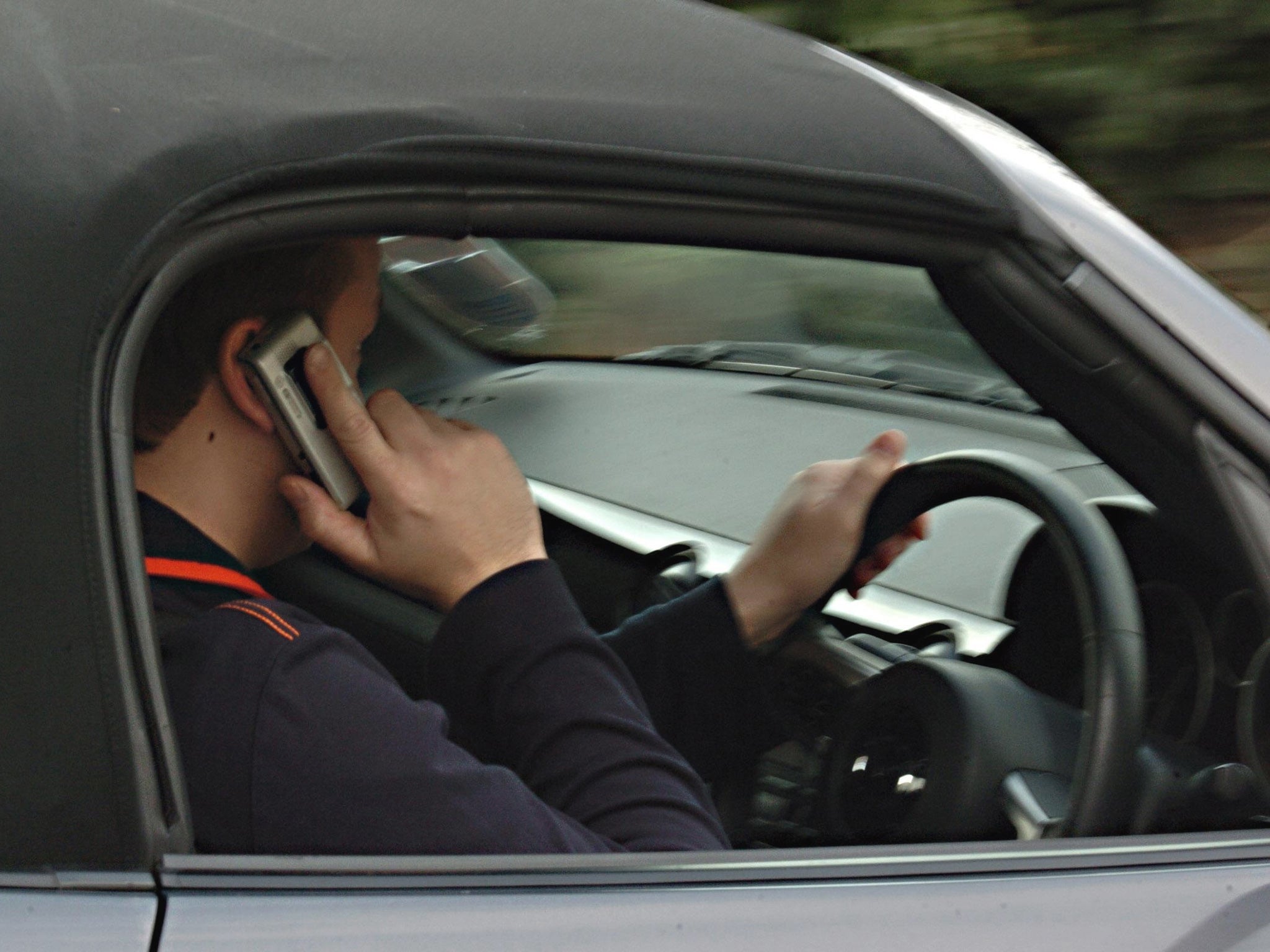More Britons than ever think using phone while driving is wrong, research finds
Seventy per cent of people are against devices being used at the wheel

The proportion of Britons who believe that is not safe to talk on hand-held mobile phones while driving has reached its highest level, new research has shown.
A total of 70 per cent of people said they were against phones being used at the wheel, according to the British Social Attitudes Survey (BSAS) – which has been gathering data on the subject since 2006.
This compares with just 56 per cent in 2007 and represents a year-on-year increase of three percentage points.
The latest report, which was commissioned by the Department of Transport (DfT), reveals public attitudes in 2017 and shows that tougher penalties for illegal mobile use and public awareness campaigners have not had an impact on everybody.
Only 3 per cent of respondents said they "agree strongly" that it is safe for someone to talk on a hand-held phone while they are behind the wheel.
Since 1 March last year, motorists caught using a hand-held phone have faced incurring six points on their licence and a £200 fine – up from the previous penalty of three points and £100.
Read More: Compare providers and find the best deals with our Mobile Phone Deals page
Pete Williams, RAC road safety spokesman, said: "These figures show there remains strong public feeling about drivers using mobile phones at the wheel illegally, even after the introduction of tougher penalties more than a year ago.
"We fear there is a proportion of drivers who simply feel the law will never catch up with them – or that continuing to use a hand-held phone while also trying to do something as demanding as driving is in some way ‘safe’, when all the evidence shows otherwise.
"Given just how difficult it can be for police forces to enforce the hand-held mobile phone law, especially with limited resources, it is time for some creative thinking on tackling the problem.
"The government should be looking at how new technologies could aid enforcement, backed by some strong national and local publicity campaigns."
Norfolk County Council is installing road signs which detect when a mobile phone is being used in a moving vehicle.
The system flashes up a red warning signal to drivers when it detects a call.
The technology cannot yet log number plates or be used to help catch offending drivers, but it is hoped it will act as a deterrent.
Separate DfT figures show 780 people were injured in accidents in 2016 when a driver was distracted or impaired by their phone, up 10 per cent on the previous year.
The BSAS also found that scepticism towards speed cameras is declining.
For the first time since the subject was investigated by the survey in 2005, more people disagree (30 per cent) than agree (29 per cent) that there are too many speed cameras.
Meanwhile the proportion of Britons who believe they exist "mostly to make money" has fallen to 42 per cent, compared with 48 per cent the previous year and 56 per cent in 2010.
Some 2,963 people were surveyed for the BSAS.
Agencies contributed to this report
Join our commenting forum
Join thought-provoking conversations, follow other Independent readers and see their replies
Comments